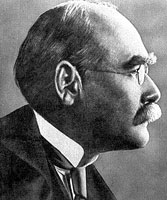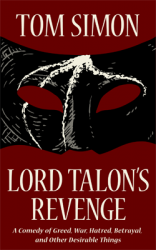It’s one thing to beat a dead horse. It’s another thing to marry it.
—Wendy S. Delmater, publisher & editor of Abyss & Apex
Wendy S. Delmater on ‘The Wheel of Time’
Gwladys and the Ghraem’lan
This essai follows ‘Quakers in Spain’, and like it, is a revised and expanded version of a piece I wrote and put up on LiveJournal in May, 2006.
If prose style in fantasy is fraught with peril, naming is a plain old-fashioned minefield. Fantasy writers have a tendency to throw together names from any and all sources that strike their fancy, without thinking how such disparate words came to be in the same language together, or even in the same world. Writers who are very good at other aspects of their craft can still inexplicably fall down in this one area. I am sorry to make a bad example of my friend Jonathan Moeller, but when I first began to read his Demonsouled series, and the first two characters I met were called Mazael and Gerald, I was thrown out of the story long enough to cry aloud to the unheeding night: ‘Mazael is good; Mazael is right and proper. There ought to be a fantasy hero named Mazael, and now, thank God, there is one. But why on earth is he hanging out with someone whose name is a foreign monstrosity like Gerald?’ In Le Guin’s terms, Mazael is from Elfland and Gerald is from Poughkeepsie, and there needs to be some explanation of how they ever came to meet.
There are two bad ways of coming up with fantasy names; or rather, of the many bad ways that one could devise, two are much more popular than the rest. [Read more…]
‘Fairy Tales’, by G. K. Chesterton
Collected in All Things Considered (1908).
Some solemn and superficial people (for nearly all very superficial people are solemn) have declared that the fairy tales are immoral; they base this upon some accidental circumstances or regrettable incidents in the war between giants and boys, some cases in which the latter indulged in unsympathetic deceptions or even in practical jokes. The objection, however, is not only false, but very much the reverse of the facts. The fairy tales are at root not only moral in the sense of being innocent, but moral in the sense of being didactic, moral in the sense of being moralising. [Read more…]
‘The Fantastic Imagination’, by George MacDonald
From A Dish of Orts: Chiefly papers on the imagination, and on Shakespere (Enlarged edition), 1895.
That we have in English no word corresponding to the German Mährchen, drives us to use the word Fairytale, regardless of the fact that the tale may have nothing to do with any sort of fairy. The old use of the word Fairy, by Spenser at least, might, however, well be adduced, were justification or excuse necessary where need must.
Were I asked, what is a fairytale? I should reply, Read Undine: that is a fairytale; then read this and that as well, and you will see what is a fairytale. Were I further begged to describe the fairytale, or define what it is, I would make answer, that I should as soon think of describing the abstract human face, or stating what must go to constitute a human being. A fairytale is just a fairytale, as a face is just a face; and of all fairytales I know, I think Undine the most beautiful.
Many a man, however, who would not attempt to define a man, might venture to say something as to what a man ought to be: even so much I will not in this place venture with regard to the fairytale, for my long past work in that kind might but poorly instance or illustrate my now more matured judgment. I will but say some things helpful to the reading, in right-minded fashion, of such fairytales as I would wish to write, or care to read. [Read more…]
The calendar of Pyrandain
Joseph Ebbecke has the honour of being the first reader to ask (in writing) a question about the world of The Eye of the Maker after the publication of Book I. His question:
I clamor for calendars, appendices, glossaries!
Are Sheaftide and Scythetide months or seasons?
My reply:
Calendars, appendices, glossaries still to come. Be of good hope!
Sheaftide and Scythetide are not months or seasons, they are weeks, like Holy Week or Whitsuntide in our own calendar. [Read more…]
The End of Earth and Sky
The Eye of the Maker
Book One
THE END OF EARTH AND SKY
Now available exclusively from Amazon
Young Calin Lowford sees his best friend slain by a creature not seen in the land since the ancient wars. Forbidden to join the fight against these foes, he is sent as servant to the wizard Rijeth, to learn of strange magics and stranger omens. His quest to avenge his friend will lead him through sorcery and peril to a secret at the end of the world — the mysterious Eye of the Maker.
The Next Big Thing
Jonathan Moeller has tagged me for The Next Big Thing. I am nearly as susceptible as a dragon to flattery (although, unlike Smaug, I am painfully aware of the weak points in my armour); what is more important, I am stuck on the all-important cover copy for the Octopus, so I can answer these questions as a sort of rehearsal. [Read more…]
‘Cold Iron’, by Rudyard Kipling
‘Gold is for the mistress — silver for the maid —
Copper for the craftsman cunning at his trade.’
‘Good!’ said the Baron, sitting in his hall,
‘But Iron — Cold Iron — is master of them all.’So he made rebellion ’gainst the King his liege,
Camped before his citadel and summoned it to siege.
‘Nay!’ said the cannoneer on the castle wall,
‘But Iron — Cold Iron — shall be master of you all!’ [Read more…]
Lord Talon’s Revenge
A man with no name, no country, no face, has one simple desire: revenge on the tyrant who robbed him of all else. Just a few small obstacles stand in his way. . . .
Greed: Sagrendus the Golden, Prince of Dragons, has a good business: abduct princess, collect ransom, repeat until rich. He charges extra for taking sides.
War: General Griffin, ogre mercenary, always fights for his client — even if there is nobody to fight against.
Hatred: Princess Jacinth hates the man she will have to marry — whoever he is. She also hates kings, rescuers, men, women, and especially porcelain dolls.
Betrayal: What keeps King Talvos on the throne of Ilberion? He’s better at double-crossing than anyone who double-crosses him.
And then there is one young fool with a sword, who still believes in heroes. Revenge is about to get a lot more complicated.
G. K. C. on the laws of Elfland
The more I think about this passage, the more I am convinced that it expresses a fundamental and necessary principle of Fantasy; indeed, it may contain the key to the whole art: [Read more…]












Recent Comments